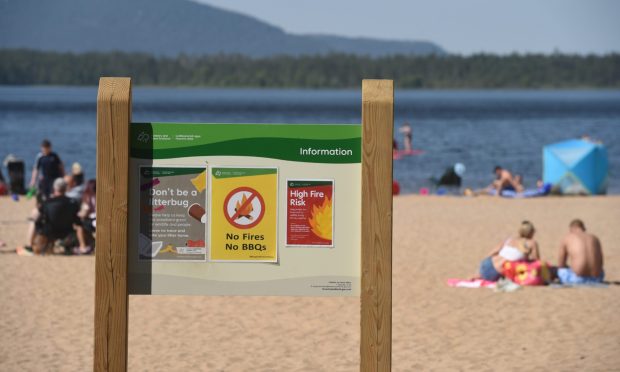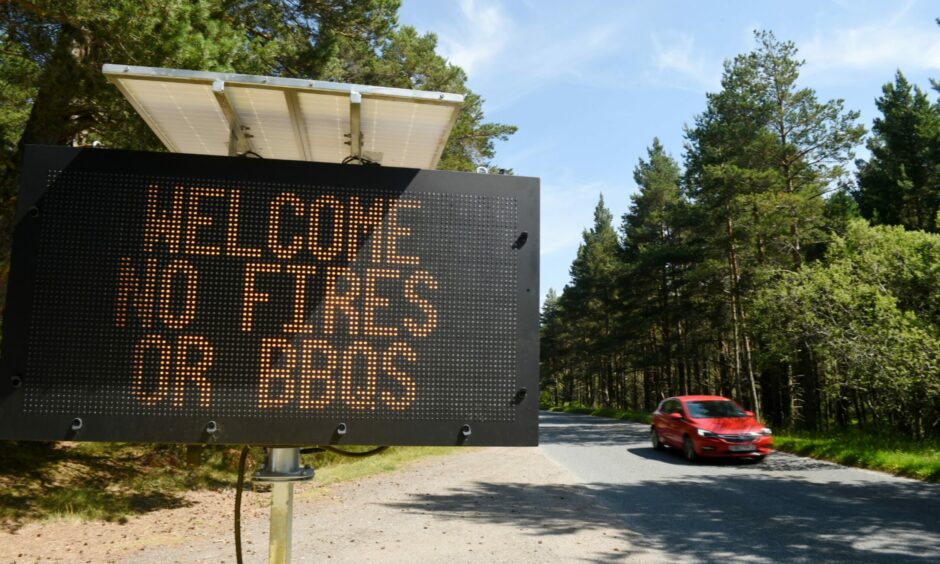The managers of Cairngorm National Park are set to ask the public if it should introduce park-wide fire bans.
The board of the Cairngorms National Park Authority agreed to start a period of public consultation in January, at its Friday, November 24 meeting.
The park authority is mulling over three options to manage the risk of wildfires moving forward.
One would see a year-round fire management byelaw introduced. It would restrict fires with certain exceptions.
Another option would be to impose a fire management byelaw only at certain times of the year when wildfire risk is high.
The third and final option is to not introduce any byelaws. The plan instead would be to continue to develop a robust communications and education programme.
Grant Moir, Chief Executive of the Cairngorms National Park Authority explained: “Wildfire risk is increasing in Scotland and climate modelling shows a predicted increase in drought periods and we need to consider ways to reduce the risk to people, nature and property in the National Park.”
Fire in Cairngorm National Park could be an “ecological disaster”
Mr Moir prepared a board paper for the meeting, in which he pointed to the significant risk a wildfire could pose in the Cairngorms.
Mr Moir wrote: “A large wildfire in the Cairngorms could be an ecological disaster and could impact significantly on people’s property and livelihoods.
Nineteen thousand people live within the park’s boundaries. Two million visit the park each year.
It is also home to 25% of the rare and endangered species and over half of Scotland’s semi-natural pine woodland.
Convener of the Park Authority board, Sandy Bremner said: “As a board we are very supportive of the Authority’s proposals to consult with residents, land managers, visitors and various partner organisations on the possibility of fire management byelaws being introduced in the Park.
“We must protect our landscapes, wildlife and communities from the risk of harm from fires so this is an important first step in that process.”
The proposed public consultation would last ten weeks. If the public backs a byelaw, there are still a number of steps before one could be implemented.
A byelaw would require a further period of consultation, approval from the Park Authority board and finally the go ahead from Scottish Government ministers.
Mr Moir added it would likely not be until 2025 that a byelaw was introduced.



Conversation